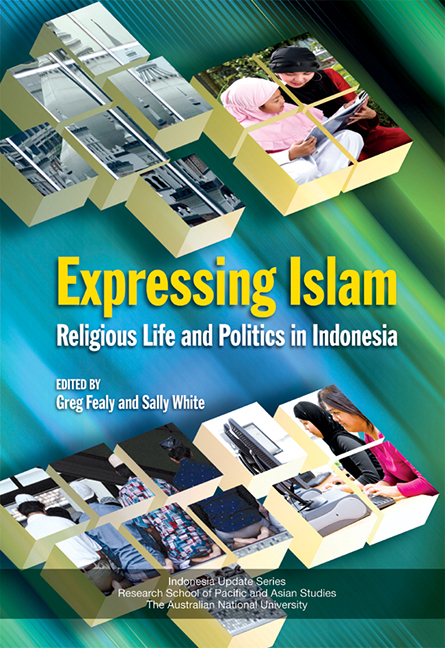Book contents
- Frontmatter
- Contents
- List of Figures and Tables
- List of Contributors
- Acknowledgments
- Glossary
- Map
- 1 Introduction
- PART I EXPRESSING PERSONAL PIETY
- PART II POLITICAL, SOCIAL AND LEGAL EXPRESSIONS OF ISLAM
- PART III THE ISLAMIC ECONOMY
- 13 The Development of Islamic Banking in the Post-crisis Indonesian Economy
- 14 Islamic Microfinance Initiatives to Enhance Small and Medium-sized Enterprises
- 15 Community Development through Islamic Microfinance: Serving the Financial Needs of the Poor in a Viable Way
- Index
- Indonesia Update Series
- Plate section
15 - Community Development through Islamic Microfinance: Serving the Financial Needs of the Poor in a Viable Way
from PART III - THE ISLAMIC ECONOMY
Published online by Cambridge University Press: 21 October 2015
- Frontmatter
- Contents
- List of Figures and Tables
- List of Contributors
- Acknowledgments
- Glossary
- Map
- 1 Introduction
- PART I EXPRESSING PERSONAL PIETY
- PART II POLITICAL, SOCIAL AND LEGAL EXPRESSIONS OF ISLAM
- PART III THE ISLAMIC ECONOMY
- 13 The Development of Islamic Banking in the Post-crisis Indonesian Economy
- 14 Islamic Microfinance Initiatives to Enhance Small and Medium-sized Enterprises
- 15 Community Development through Islamic Microfinance: Serving the Financial Needs of the Poor in a Viable Way
- Index
- Indonesia Update Series
- Plate section
Summary
Indonesia's first Islamic bank, Bank Muamalat Indonesia, was established in 1991. Since then, the institutional base of the Islamic economy in Indonesia has expanded rapidly. This sector now covers not only the conventional banking and financial sector, but also zakat management organisations, sharia economy training institutions and professional business associations. The microfinance institutions known as Islamic saving and loan cooperatives (BMTs) are one of the fastest growing areas of Islamic finance. They provide financial services to small and mediumsized businesses and the poor, as well as being a source of professional jobs for middle-class Muslims. The number of BMTs increased from just one in 1992 to 1,957 in 1999 (Lubis 2004). The newly formed Association of Indonesian BMTs (Asbindo) estimates that 3,200 BMTs were in operation in 2006.
What is remarkable about BMTs is that their development has been supported largely by individuals and private organisations rather than the government, which was the prime mover behind the development of Indonesia's commercial microcredit business. As Antonio observes in Chapter 14 of this book, their success demonstrates that microlending can be carried out profitably and sustainably. The World Bank (2005) finds that microlending is an effective way of supporting small and medium-sized enterprises. It estimates that 50 per cent of Indonesian households may still lack access to the credit they need to fund their enterprises, despite the numerous microcredit schemes facilitated by the Indonesian government since the early 1980s.
Despite the intriguing financial success of BMTs, there have been very few social studies on the Islamic economy, especially Islamic microfinance, in Indonesia. With the exception of Hefner (2003), who describes the vision shared by the founders of Bank Muamalat Indonesia, previous studies have focused on the theological foundations of the Islamic financial system and the legal and institutional development of Islamic finance (Effendy 2005; Lubis 2004; Salim 2003). My interest here is in examining the perceptions of those who are directly involved in providing or obtaining Islamic microfinance. Why do people start a BMT? Why do people work for BMTs? Why do people use them?
- Type
- Chapter
- Information
- Expressing IslamReligious Life and Politics in Indonesia, pp. 267 - 286Publisher: ISEAS–Yusof Ishak InstitutePrint publication year: 2008



